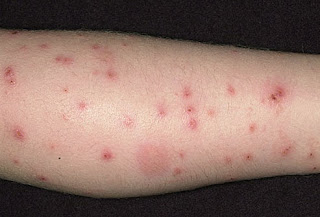 |
| How To Get Rid Of Acne Home Remedies |
How To Get Rid Of Acne By Home Remedies – is a common
question for almost every one by those who are suffering from acne problem. It
is not possible to completely stop the formation of acne. Acne may ruin your
days and leave behind aesthetically unpleasant scars. Hence, acnes are a blot
on the beauty of a woman. Every woman wishes to get rid of them as early as
possible when they are planning for a date or a party with her friends. Your
opening of this page will surely help to get rid of acnes overnight. In order
to have pimple free skin overnight, all you need to do is to follow these
simple remedies at home.
Some very effective ways for how to get rid of acne by home
remedies as soon as possible:
Following are some simple home remedies to get rid of acnes
as early as possible:
This is the most famous remedy to get rid of acnes
overnight. Apply toothpaste before going to bed. Do not use gel for this. At
night, wake up for a few times and check whether toothpaste covering is still
there, else re-apply toothpaste on the acne. You will find a significant
improvement in the morning.
Take a container and fill it with water. Boil the water for
a few minutes and later keep the container below your face. Let the steam to
moisturize your face for 2–3 minutes. Rinse your face with tepid water. This
helps in removing dirt, dust and oil from the skin pores without aggravating acnes.
Application of an oil free moisturizing lotion helps to restore the lost
moisture. This remedy aids in getting rid of acnes.
Another simple remedy to get rid of acnes is application of
lemon juice on the acne before sleeping. Sleep happily to see acnes getting
dried the next morning.
This is a pleasant smell giving acne treatment. Mix honey
and cinnamon to make a paste and apply it over acnes before going to bed. Next
morning wash your face with cold water. You may feel itching sensation in the
first few minutes as honey is sticky. You will find that the acnes are dried
and dead the next morning.
Although this remedy is not effective for all, it has helped
many teenagers in getting rid of acnes. Apply lavender oil on acnes to dry them
to a great extent. Apply lavender oil repeatedly to get rid of acne overnight.
These are a few home remedies to get rid of acnes overnight.
These do not have any adverse effect on your skin but some may not be effective
on your skin. Follow a remedy for a few weeks and if you do not find any
improvement, consult a dermatologist for further assistance.
To know more: Get Rid of Acne By Home Treatment
To know more: Get Rid of Acne By Home Treatment





